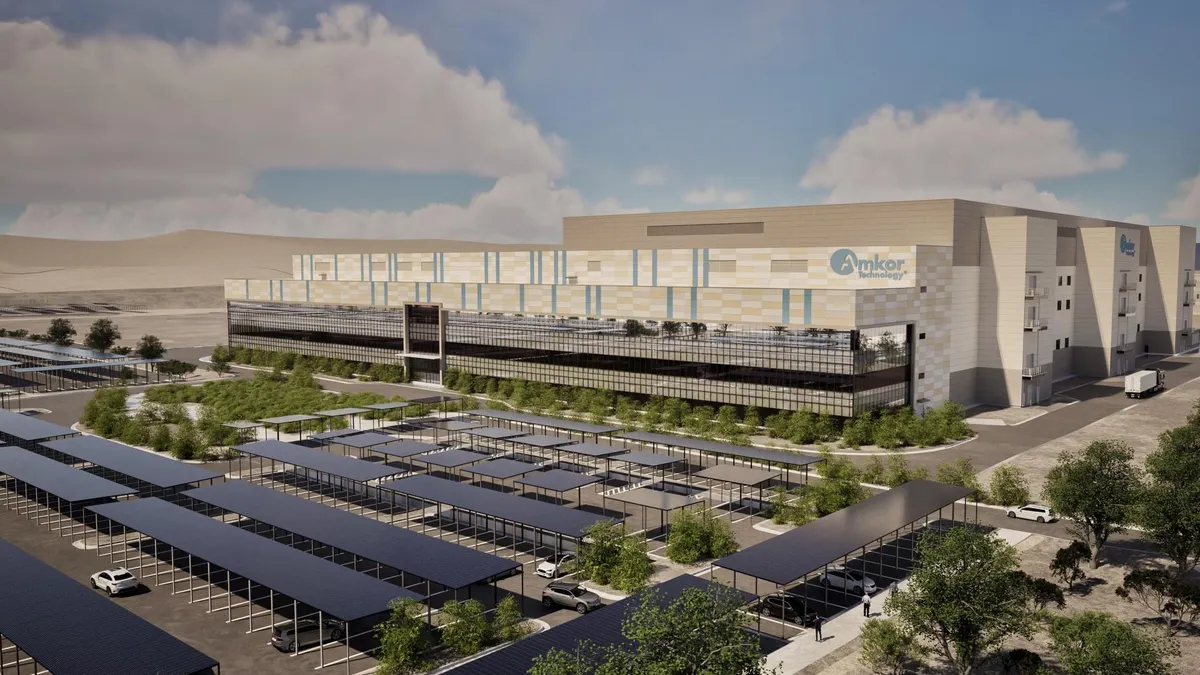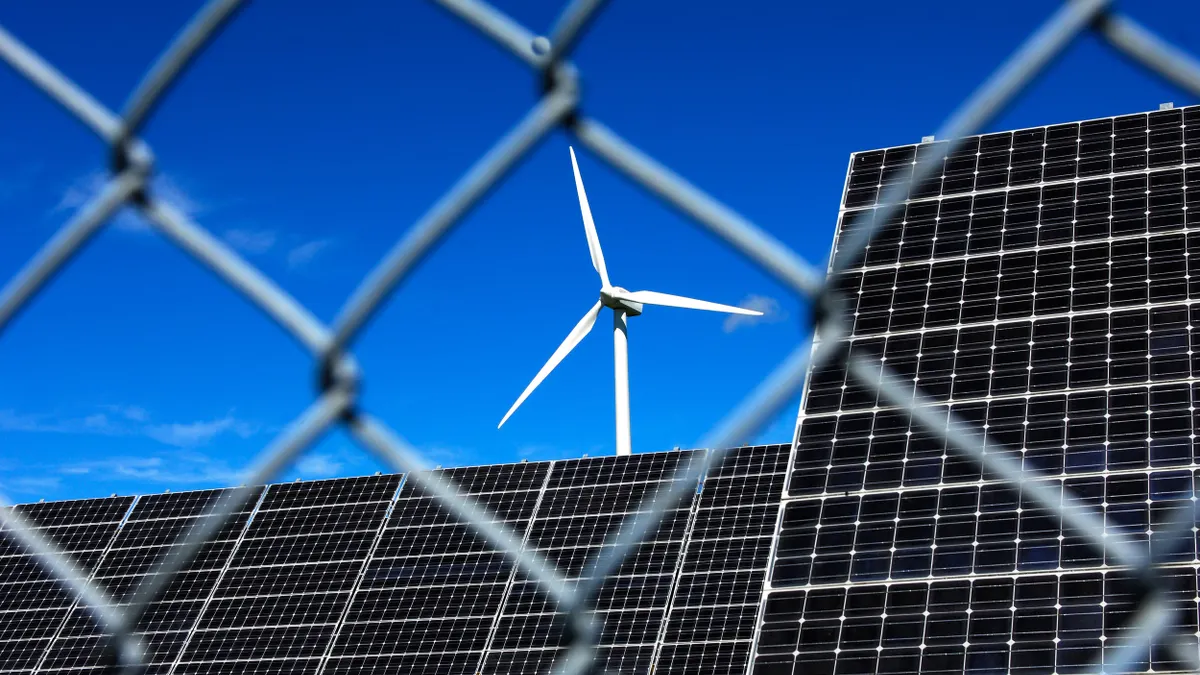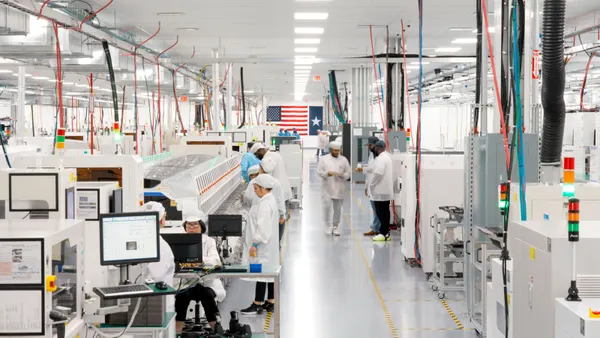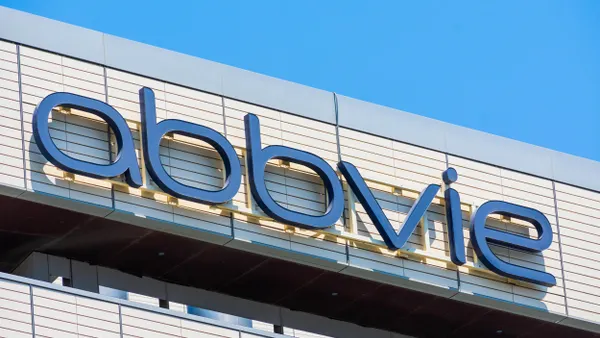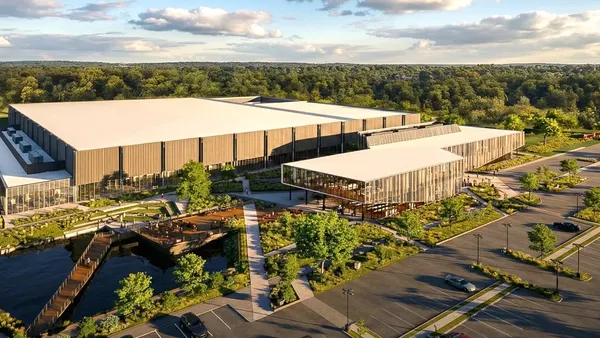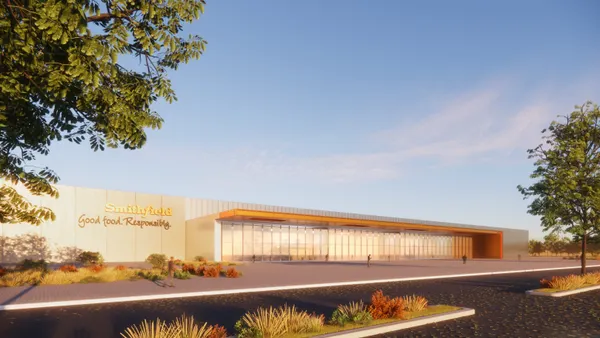Dive Brief:
- Amkor Technology has broken ground on a new semiconductor packaging and testing campus in Peoria, Arizona, the company announced Monday. Construction is expected to be finished in mid-2027, and production is slated to begin in early 2028.
- The company expanded its total investment to $7 billion across two phases. The Arizona campus will include packaging and testing facilities along with 750,000 square feet of cleanroom space.
- Amkor will collaborate with Taiwan Semiconductor Manufacturing Co. to supply chips to customers such as Apple and Nvidia.
Dive Insight:
Amkor described the Arizona site as the “first U.S. based high volume advanced packaging facility.” This week’s announcement marks a $5 billion increase from original plans to build a $2 billion facility.
Its campus will complement TSMC’s nearby wafer fabrication site. The testing and packaging campus, combined with TSMC’s fabs, create “an end-to-end silicon supply chain in America,” Apple COO Sabih Khan said in a statement. TSMC produces Apple silicon, and Amkor’s new facilities will package and test the chips, Khan said.
Apple has been a key partner to Amkor. The two companies collaborated on the chip packaging facility, and Apple will be Amkor’s first and largest customer once the campus opens. Amkor will also supply chips to Nvidia.
“Together, we are rebuilding the supply chain — onshoring the AI technology stack that turns energy into intelligence,” said Nvidia CEO Jensen Huang in a statement.
Amkor’s investment boosts domestic semiconductor supply chains in an industry that has relied heavily on imports. Last year, the U.S. imported $22.6 billion of semiconductors, with more than $5.6 billion coming from Vietnam and more than $3 billion each imported from Thailand and Malaysia.
The company previously disclosed its Arizona project would receive $407 million in funding from the Chips and Science Act. Its latest release also noted financial support from an advanced manufacturing investment tax credit, as well as from state and local governments.
President Donald Trump has spoken multiple times about imposing tariffs on semiconductor imports, but the timeline remains unclear. The U.S. Department of Commerce launched a Section 232 investigation in August.
It’s still an open question if tariff threats or incentives such as tax credits or Chips for America – part of the Chips and Science Act signed into law during the Biden administration – will bring a wave of manufacturing to the U.S.
Chip manufacturers are scaling up capacity as tech companies are hungry for the semiconductors needed to power their artificial intelligence plans. Amkor said its factory technology and production lines will “meet evolving market demands for AI, high performance computing, mobile communications, and automotive applications.”
Arizona, specifically, has become a hotbed for semiconductor manufacturing, with TSMC building two sites in the state as part of a $40 billion investment. Amkor CEO Giel Rutten said the state “offers the right mix of talent, infrastructure, and industry presence.”
Amkor’s facility is expected to create 3,000 jobs. In the past, semiconductor manufacturers have struggled to fill the jobs they touted would come along with their new facilities. In 2023, TSMC disclosed that it was sending workers from Taiwan to Arizona to help with labor needs at its fabs.



